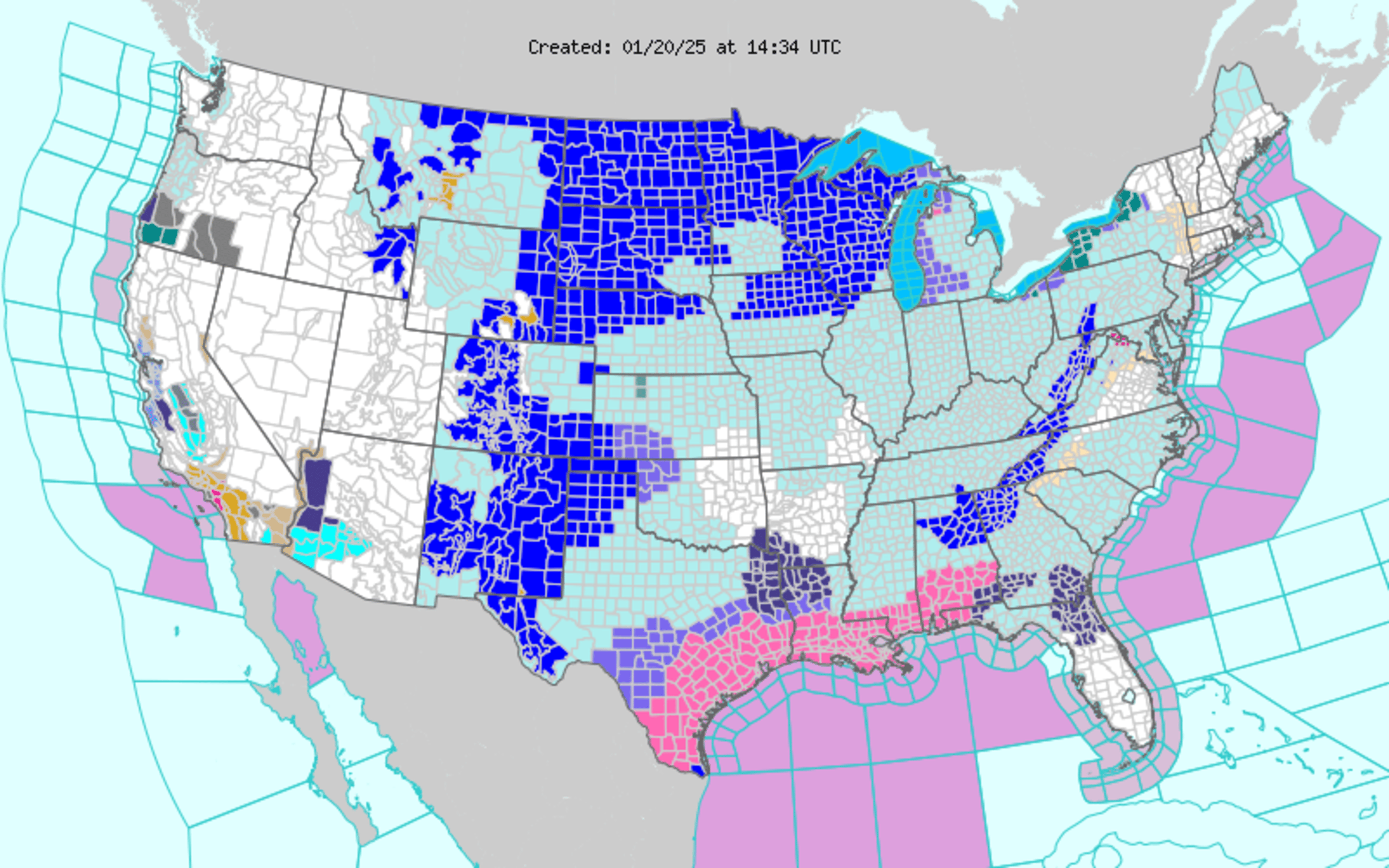A brand of milk has been recalled due to concerns that it may go off earlier than anticipated.
The "Horizon Organic Aseptic Plain Whole Milk" product, distributed by Colorado-based Horizon Organic Dairy, was recalled due to the "potential for premature product spoilage during shelf life."
The recall was voluntarily initiated by the firm on December 13 last year and on January 17, the milk products were issued a Class II risk level by the U.S. Food and Drug Administration (FDA).
Class II risk levels are given when "use of or exposure to a violative product may cause temporary or medically reversible adverse health consequences or where the probability of serious adverse health consequences is remote," the FDA explains.

Class II is the second-most severe risk level, while products are issued a Class I risk level when "there is a reasonable probability that the use of or exposure to a violative product will cause serious adverse health consequences or death."
The recalled products were 8oz cartons, with both individually sold cartons and 12-packs being involved in the recall. The 12-packs had universal product codes (UPCs) of 3663207113, while the single units had UPCs of 3663207127.
19,688 cases of the milk overall were recalled, 8,654 of which had an expiry date of 3/3/2025, 7,385 with expiry date 3/4/2025, 1,781 with expiry date 3/6/2025, and 1,868 with expiry date 3/7/2025.
These products had been distributed across Arizona, California, and Nevada.
Newsweek has contacted Horizon Organic Dairy for comment.
The exact reason for this product being in danger of premature product spoilage was not given. Products may spoil early due to a range of issues, including defects in the packaging, like leaks or weak seals, which can expose the milk to air, allowing bacteria to grow or exposure to temperatures outside the recommended range during transport or storage, causing bacterial growth to accelerate.
Additionally, if pasteurization is incomplete or uneven, some harmful bacteria might survive and grow, causing early spoilage.
This is not the only milk product that has been recalled in recent months, with over 100 bottles of breast milk being pulled from shelves for fears they could have been contaminated with a "foreign material."
A raw milk product was also recalled in California in December after bird flu viruses were detected in the milk.
"Bird flu virus levels have been demonstrated to be high in raw milk from infected cows, and sporadic human cases identified in workers in close contact with infected dairy cows and their milk indicate that raw milk is infectious to humans," the California Department of Public Health said at the time.
"Drinking or accidentally inhaling raw milk containing bird flu virus may lead to illness. In addition, touching your eyes, nose, or mouth with unwashed hands after touching raw milk with bird flu virus may also lead to infection."
However, contamination with pathogens like bird flu can be avoided via pasteurization, which heats milk products just enough to kill off any dangerous germs.
"Pasteurized milk remains safe to drink," a CDC spokesperson previously told Newsweek. "Pasteurization is the best method of eliminating disease-causing organisms in milk and the only method routinely used in the United States."
Do you have a tip on a science story that Newsweek should be covering? Do you have a question about food recalls? Let us know via science@newsweek.com.




















 English (US) ·
English (US) ·